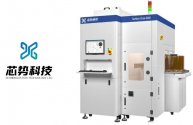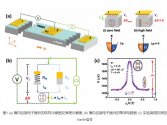Wanye Enterprise launches a new generation of ion implanters: technological breakthroughs lead the innovation of chip manufacturing.
Wanye Enterprise, a leading domestic semiconductor equipment manufacturer, announced the latest progress of a new product with milestone significance, the Kaishitong series ion implanter. This equipment, with its highly complex system and R&D difficulty close to that of a photolithography machine, demonstrates the strong strength of domestic high-end semiconductor equipment.
The newly launched ion implanter has achieved significant technical upgrades, especially in terms of ultra-low energy and high-dose implantation, high-angle uniformity control, and equipment capacity improvement. Through hundreds of technical upgrades, the Kaishitong team has not only improved equipment performance, but also met customers' stringent requirements for precision technology. This indicates that China is gradually narrowing the gap with the international advanced level in the field of key chip manufacturing equipment.
The marketization of this ion implanter will directly affect the global semiconductor industry chain. In the four major application fields of logic, storage, power and CIS, it has won key orders from many 12-inch wafer factories, showing strong market acceptance. Especially in the wide bandgap semiconductor industry such as silicon carbide, Kaishitong's high-temperature ion implanter has demonstrated its forward-looking layout, indicating that it will have a significant impact in emerging markets in the future.
As Wanye Enterprise increases its R&D investment, the industrialization process of its full range of ion implanters is also accelerating, including SOI hydrogen ion implanters, SiC high-temperature ion implanters, etc., which will provide customized solutions for different application scenarios. This series of innovations will reshape the market landscape, challenge existing competitors, and may promote more domestic equipment to the international market.
For consumers, this means more stable and efficient chip production, which is expected to reduce the cost of electronic products and improve the overall performance. However, it also means that competition in the industry will be more intense, and only those companies that can continue to innovate and provide high-quality services can gain a foothold in the market.


